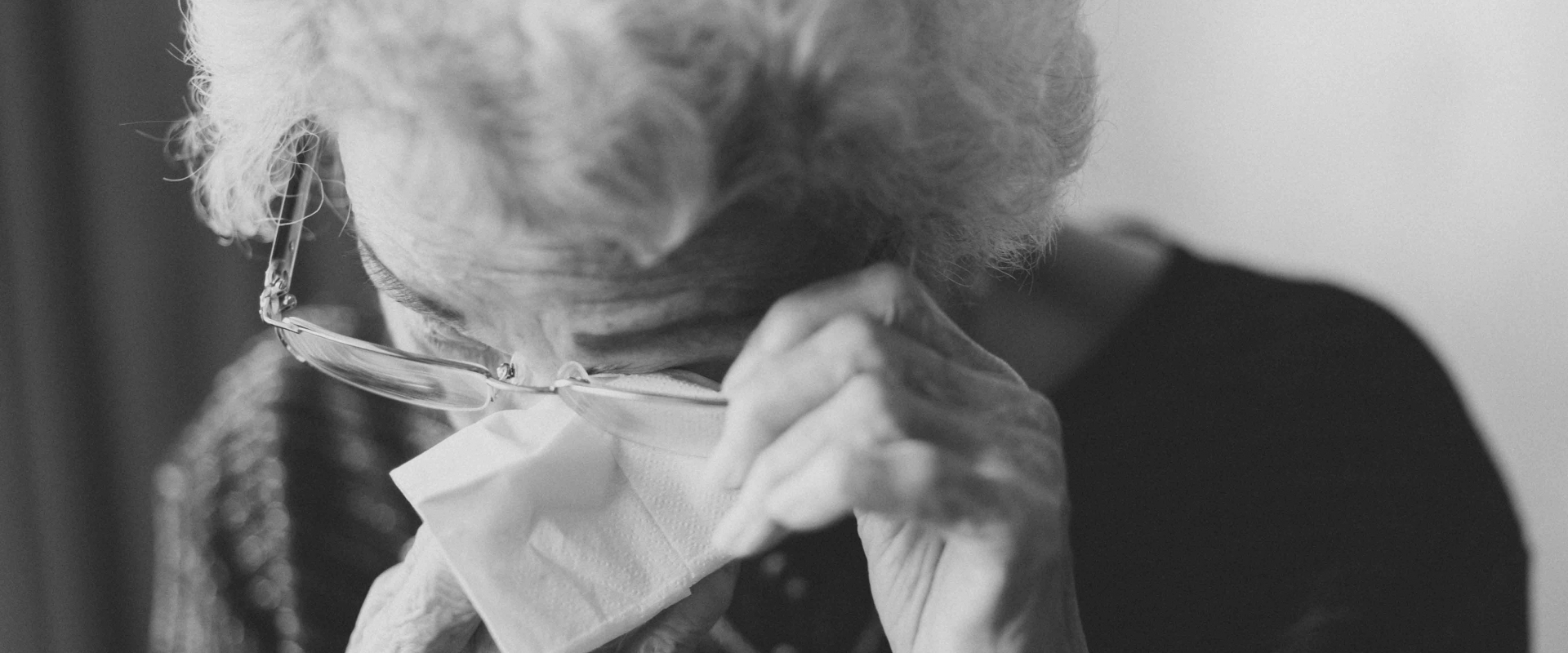Loneliness (feeling low)
Almost everyone feels this loneliness, a sense of complete separation from the person who is no longer alive. We feel really low in spirit, don’t know what to do, or where to go to find relief.
It is important to realise that this is normal. It is alright to feel low and alone, even if we have plenty of family and friends around to support us.
Physical Symptoms of Distress
The pressure of coping with bereavement may sometimes cause our bodies to react with headaches, backaches, asthma or some other illness. Sometimes this can even reflect the symptoms of the deceased. A visit to the doctor may be wise, but often it is just nature’s way of telling us to “take it easy” for a while.
Pining (unable to cope with today)
Pleasures and the friendship that we shared with the deceased pre-occupy us – nothing else seems to give comfort!
Many people fear that they may be going “crazy” with their grief, but knowing that this is a normal human reaction which is part of the recovery process will help us push through this stage. Now is the time to reach out to other people – it’s not that easy to do, but it is important to keep trying.
Relief
Many people closely involved with the person who was ill for some time before death can find themselves emotionally drained and physically exhausted. For many, there is a feeling of relief that the deceased’s pain and suffering has finally ended. It’s alright to feel relieved – it’s quite normal. We must accept that relief without feeling guilty.
Sense of Guilt
When we have lost someone dear to us, many of us take on the blame for what has happened.
“But I only spoke to him yesterday!”..”If only I had been there!”..”I could have stopped her driving that night!”. These are all typical reactions to death and quite normal.
Whether real or imagined, all feelings of guilt hurt the ones who are grieving. We must not take the blame for something out of our control.
Anger
As we gradually turn our feelings away from ourselves, many of us experience intense anger towards the person who has died (How could he leave me like this?), towards the medical profession (Why didn’t the doctors save her?), and even toward God (If He is a loving God, how could He let him/her die?).
It’s alright to feel angry. It’s quite normal and it is important not to suppress these feelings. It is also important to let our anger not get out of control, but to direct it in a positive way.
Where possible, sharing these feelings with a compassionate listener will help.
Inability to Return to Normal Activities
Although now through the worst of the emotional upheaval, it is still difficult to return to normal activity. We may become apathetic and lacking in energy, but this isn’t permanent.
It does help if we can share our memories with others by talking about the life and death of the deceased.
It’s Alright to Cry
Whenever we are confronted by loss, particularly the loss of bereavement, we experience one of the strongest human emotions – that of grief.
When someone who has shared part of our life dies, whether a family member or a close friend, the emotions we feel can leave us desolate and confused.
This is normal. It happens to everyone, and it’s quite alright to feel emotionally devastated.
Grief is a natural response to a significant loss. It is not just a temporary state of mind – it is a whole process that may take years to work through.
The Light at the End of the Tunnel
Gradually we can start picking up the threads of some activities we enjoyed before and try to re-establish a life that has some meaning.
Most of us need to move through the various stages of our grief, in whatever order they come, so that we can finally begin to build a new life.
Welcome Back
At last, life becomes bearable again. We can “re-join the human race”, although we will never be the same as before.
It is now important to have enough self-esteem to recognise our own capabilities and strengths, as well as having faith in others to help us cope.
Don’t be Afraid to Ask for Help
The stages of grief may happen in any order – some may go unrecognised, while others will not apply to everyone. What is important is not to get stuck in one stage as we work our way through.
If this happens, it may be helpful to talk to someone with training in the area of grief. There are experienced Bereavement Counsellors available which your Funeral Director or clergy can refer you to without judgment.
How to Help Those Who are Grieving
Grieving people need someone to listen and all the care, encouragement and support they can get to help them re-establish their lives.
Some of their most important needs are:
- The need to feel Support
- The need to face Reality
- The need to express Feelings
- The need to move towards Re-establishment and to Go On Living.
- In other words, to help a friend in grief we need to be:
- AWARE – working through grief is a normal and necessary part of life that can take years.
- We can’t solve this problem but just being around to support will help.
- SENSITIVE – our friends have suffered a deep loss, even if we don’t see it as such. We need to journey with them through their pain, not try to take it away.
- HUMAN – we need to allow our friends to openly express all their feelings without judging them. Nobody has to justify their feelings – they are quite normal.
- READY – to listen, even when the same story is told over and over again. Talking about the deceased is a vital step towards recovery.
- PATIENT – mourning and loss of a loved one takes time.
For More Help Dealing with Grief and Loss
1737 – Free call or text 1737 any time for support from a trained counsellor.
Lifeline – 0800 543 354 or free text 4357 (HELP)
Youthline – 0800 376 633 or free text 234
Samaritans – 0800 726 666



